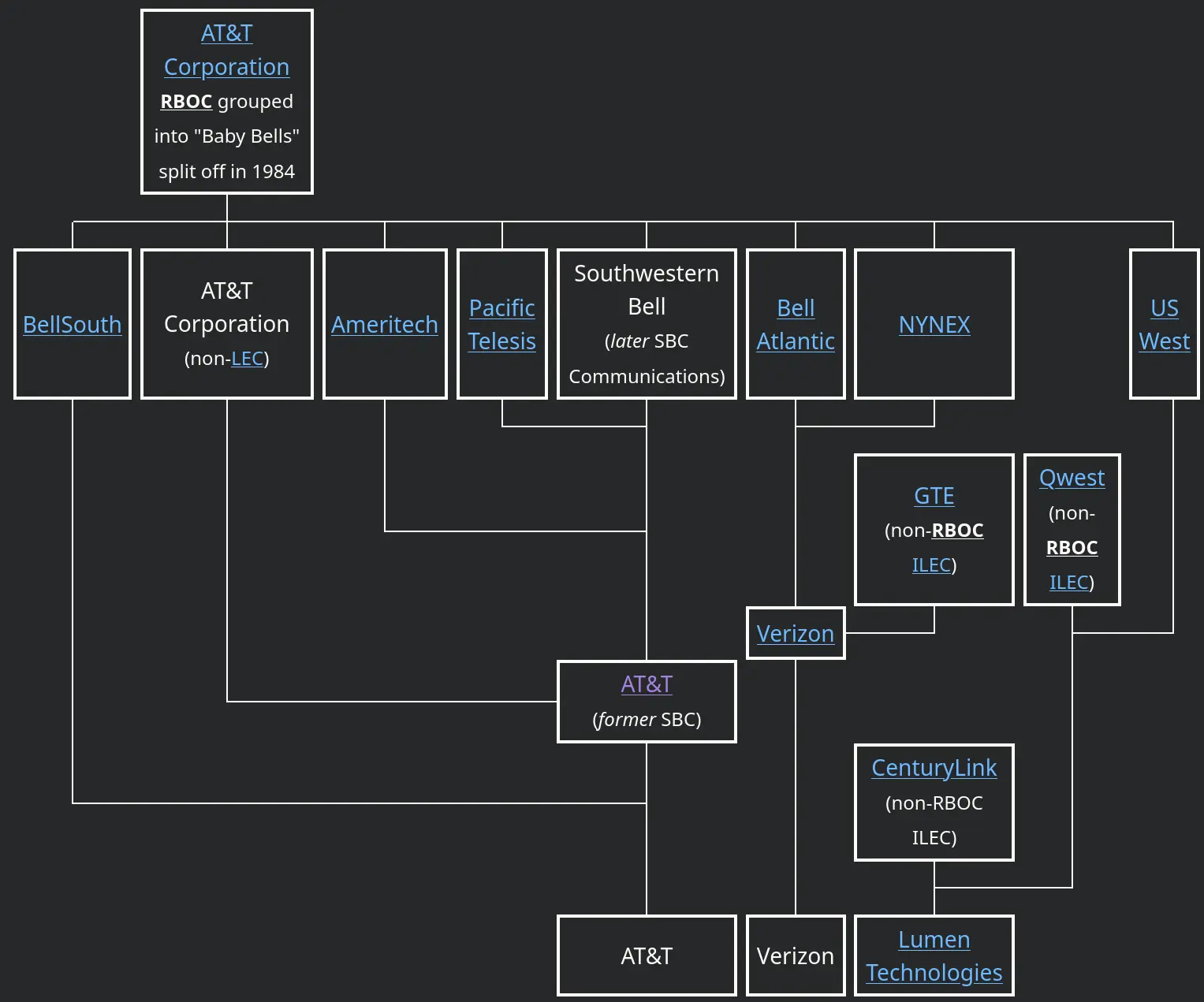

deleted by creator
/ˈbɑːltəkʊteɪ/. Knows some chemistry and piping stuff. TeXmacs user.
Website: reboil.com
Mastodon: [email protected]


deleted by creator
“That all life beyond this planet never existed, no matter how irrationally improbable that may be.”


don’t let them slowly re-consolidate in the following 20 years
I too remember how AT&T was broken up only for most of its Baby Bells to remerge back into Ma Bell.

To prevent this for future breakups, I say the content and services sold by big tech should be made competitively compatible and interoperable via nullification of DRM laws; people buy music and movies and cloud storage; let them legally move their purchases to any competitor and big tech companies will break up naturally as local competitors emerge from people who dislike big tech for their own reasons. Monopolies cannot be trusted to lower prices for content and services. Legally nullifying DRM is like the FCC telling customers in 1968 that it was finally okay to ignore the “Bell equipment only” legal warning that had kept them locked into leasing their telephone sets for usurious amounts from AT&T for decades. A few years later, in 1982, AT&T was broken up. AT&T is almost a total monopoly again, but phones remain interoperable.
If tech giants such as Google cannot be broken up, then their services should be required to be compatible and all data exportable to competitors. See the EFFʼs “Competitive Compatibility” concept. Buy a movie off Google’s YouTube but Google misbehaves? It must be exportable to a market competitor that you do support. Don’t like how Google handles your email? You should be able to switch your email address to a competitor just like you can change phone companies without losing your phone number.
Basically, if the US Federal government cannot discipline monopolies by breaking them up directly, they should break up the moats and walled gardens the monopolies built to keep customers locked in to maintain their monopolies. See Chokepoint Capitalism by Rebecca Giblin and Cory Doctorow.
Based on my cheatsheet, GNU Coreutils, sed, awk, ImageMagick, exiftool, jdupes, rsync, jq, par2, parallel, tar and xz utils are examples of commands that I frequently use but whose developers I don’t believe receive any significant cashflow despite the huge benefit they provide to software developers. The last one was basically taken over in by a nation-state hacking team until the subtle backdoor for OpenSSH was found in 2024-03 by some Microsoft guy not doing his assigned job.
Can’t wait for the day when Uncle Sam to turns brown.


I used to think “chaos” had the same “ch” as “church” when I was a kid.
The chao of Sonic Adventure (1998)?


The one that wakes me up in the middle of the night is albeït. I thought it was fancy foreign speak pronounced “all bait”, but it is just a short form of “all be it”, is pronounced exactly like that, and is a synonym for “all though it be”.
So, you’re telling me my plan to measure atmospheric oxygen isotope trends over geologic time by grinding up sharks is bust?


Just, buy a new iPhone and Mac every two years.


Termux, rsync and SSH.
Worked okay until I got overzealous and killed my battery from leaving Termux on for convenience.


The USB Type-C is useful for sharing files offline between smartphones while the USB Type-A is useful when you want to backup files to a PC at some point.
Expected behavior: The file is not composed of null bytes.
Actual behavior; The file is composed entirely of null bytes.


If he doesnʼt die from COVID.
Synology is a NAS Iʼd recommend. However, after you become more familiar with the command line and if you are building your own Debian machine with a motherboard that supports many hard drives, I would recommend something like this procedure; this applies especially if you are the only one who will be accessing the files and are just wanting a way to combine the storage capacities of multiple hard drives.
Nvidia: I have altered the deal, pray I do not alter it further.
PLATO: An automobile is craft with an internal combustion engine, crankshaft, and wheels.
DIOGENES wheels in a HONDA GX630 PRESSURE WASHER
DIOGENES: Behold! An automobile!